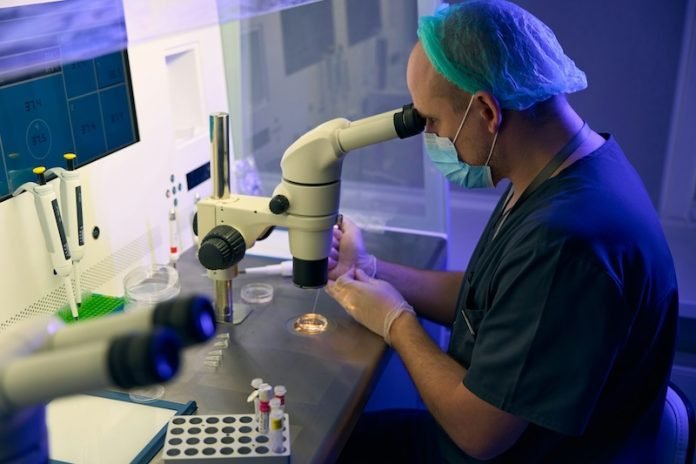
In a new study published in Nature Aging, researchers have taken a giant leap towards enhancing the accuracy of predicting chronic diseases such as type 2 diabetes, coronary artery disease, Alzheimer’s disease, and prostate cancer.
This new approach integrates traditional risk factors with cutting-edge insights into our genetics and the bacteria residing in our guts, offering a glimpse into the future of personalized medicine.
Led by Dr. Yang Liu and conducted by an international team from the Baker Heart and Diabetes Institute, the University of Cambridge, and the Finnish Institute of Health and Welfare, the study analyzed data from over 5,670 adults.
It stands out as one of the first of its kind to delve into how the combination of genetic risk scores, the gut microbiome, and traditional risk factors can refine our ability to predict disease risk.
Traditional methods for assessing disease risk often focus on factors like age, sex, body mass index, blood pressure, and certain blood tests. However, this study brings to light the significant role that genetics and gut bacteria play in our health.
By examining polygenic risk scores—which quantify the risk posed by our genetic makeup—and the composition of our gut microbiome, researchers have discovered a more nuanced way to forecast health outcomes.
The investigation took place over approximately 18 years, utilizing the FINRISK 2002 cohort, a population-based study. This long-term follow-up allowed the team to assess how well the combined data predicted the development of specific diseases, compared to traditional risk factors alone.
The era of multi-omics has unlocked the ability to measure vast arrays of biological data—from our DNA to the proteins and metabolites in our bodies, and even the communities of microorganisms that live within us.
This holistic view of the body’s complex systems is revolutionizing our understanding of health and disease.
Dr. Liu’s study showcases the potential of multi-omic technologies to identify new biomarkers and improve disease prediction.
The integration of information about our genes and gut bacteria with well-established risk factors could lead to earlier detection of diseases, tailored prevention strategies, and more precise, individualized medical care.
However, despite these promising advancements, Dr. Liu emphasizes that integrating and interpreting this wealth of data poses significant challenges.
The translation of multi-omic insights into practical tools for clinical decision-making requires further innovation and refinement.
This research marks a pivotal step toward a future where disease prediction and prevention are based on a comprehensive understanding of an individual’s genetic and microbial profiles, alongside traditional health indicators.
As the field of multi-omics continues to evolve, it holds the promise of transforming the landscape of healthcare, moving us closer to a world of personalized medicine that anticipates and averts disease before it can take hold.
If you care about diabetes, please read studies about a cure for type 2 diabetes, and these vegetables could protect against kidney damage in diabetes.
For more information about diabetes, please see recent studies about bone drug that could lower risk of type 2 diabetes, and results showing eating more eggs linked to higher risk of type 2 diabetes.
The research findings can be found in Nature Aging.
Copyright © 2024 Knowridge Science Report. All rights reserved.


